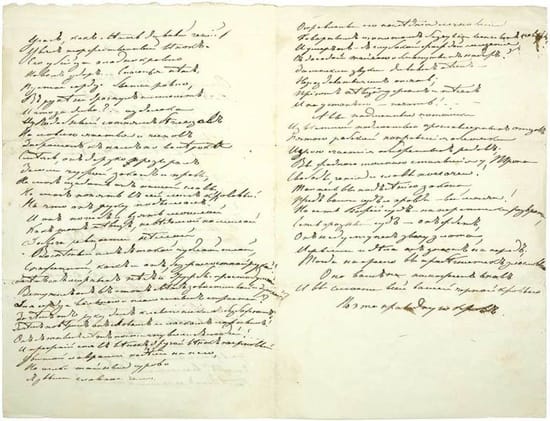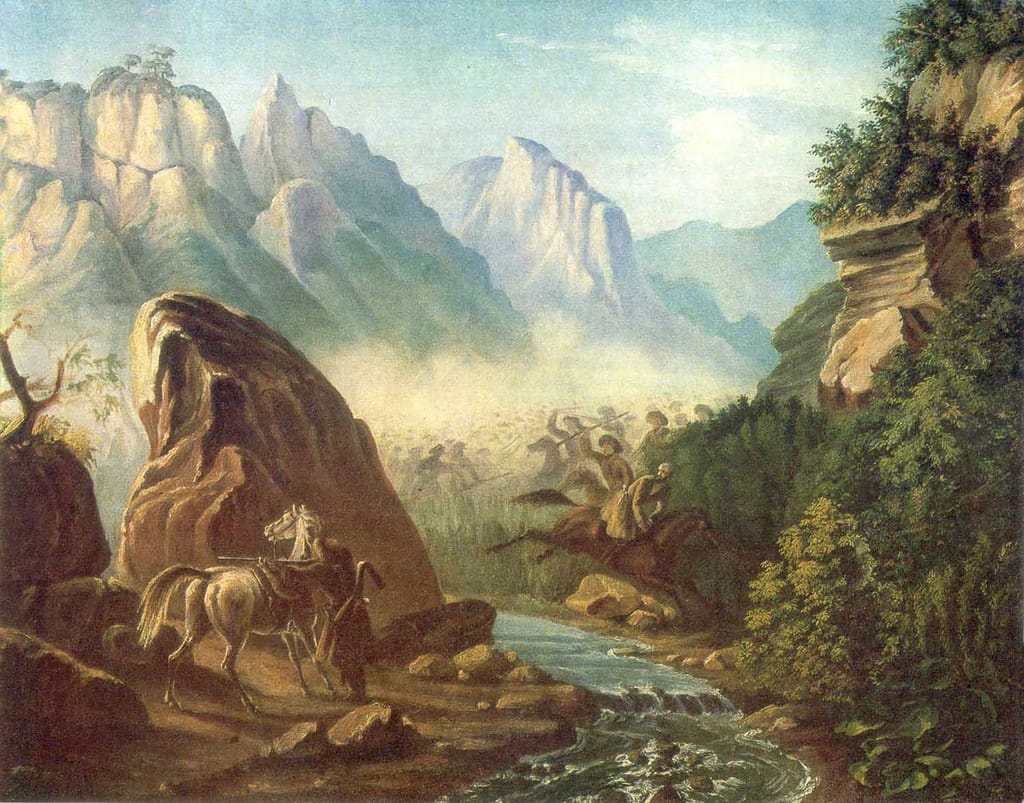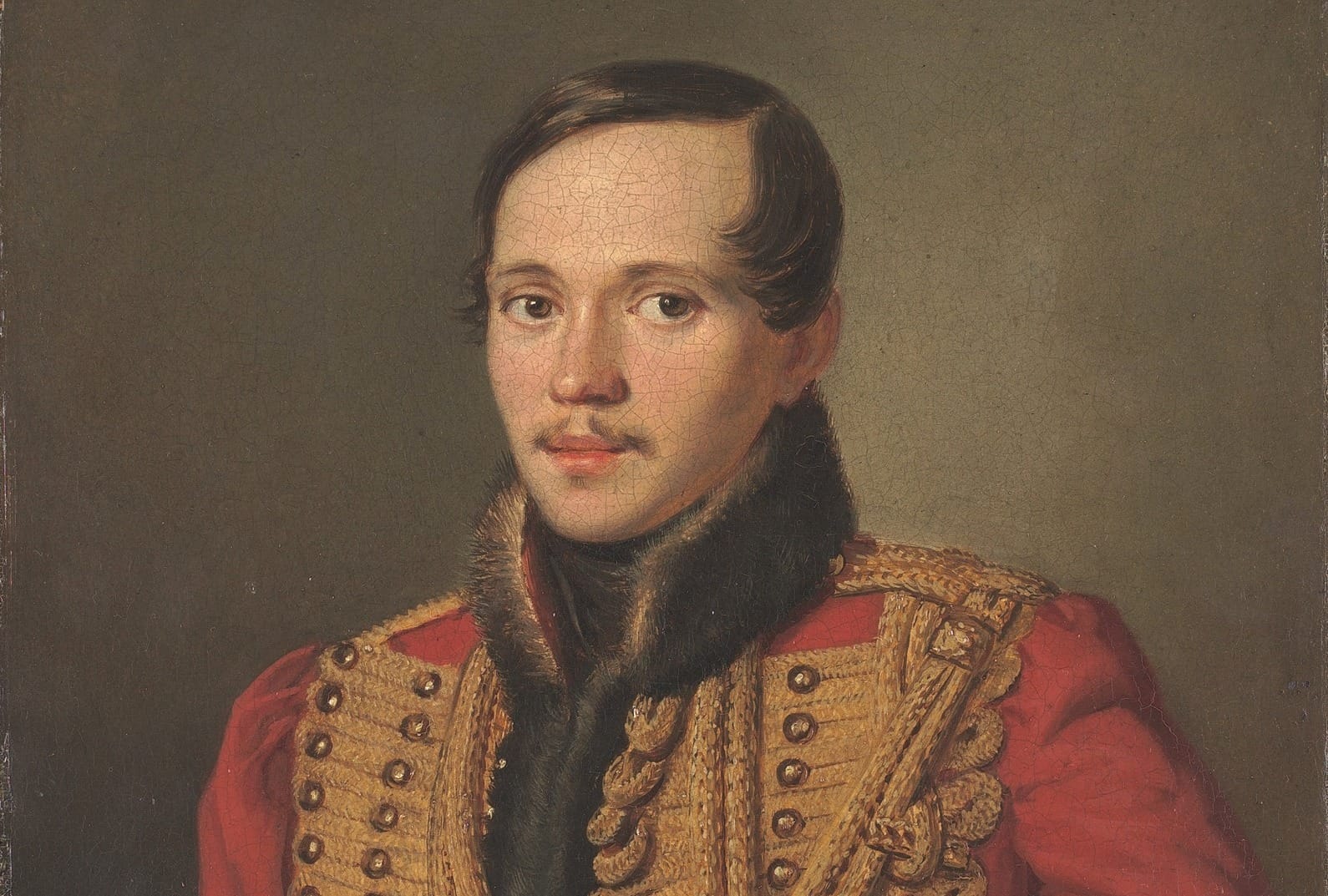It is believed that the poem about Russia as “a country of slaves and a country of masters” was written by the poet Mikhail Yuryevich Lermontov, but is this really so? We decided to check it out.
The poem “Farewell, unwashed Russia” is attributed to the authorship of M.Yu. Lermontov and it is with this attribution that it has been published for almost a century and a half in textbooks literature, collections poet's poems and online catalogs:
Goodbye, unwashed Russia,
Country of slaves, country of masters,
And you, blue uniforms,
And you, their devoted people.
Perhaps behind the wall of the Caucasus
I'll hide from your pashas,
From their all-seeing eye,
From their all-hearing ears.
This is a poem analyzed on Direct Line, President Vladimir Putin, also attributing the authorship to Lermontov.
For many years after the poet's death, there were no doubts about Lermontov's authorship in the press. However, during the Soviet years, controversy arose - is this true? First raised This question was asked by writer and literary critic Vladimir Bushin. The fact is that the original manuscript of this poem does not exist. This is not uncommon for works of that time; the author’s manuscript may not have survived, as, for example, was the case with Pushkin’s poem “In the Depths of Siberian Ores.” However, there are many handwritten copies made by Pushkin’s contemporaries, which indirectly indicates that, since he did not dispute his authorship then, it belonged to him. “Farewell, Unwashed Russia” first appeared in the form of a handwritten copy only in the 1870s, almost 35 years after the poet’s death. There are no earlier written references to the existence of this work - neither in the diaries of Lermontov and his contemporaries, nor in letters. There are no drafts either. The first publication took place only in 1887, almost half a century after the poet’s death. This also alerted Bushin, since the publishers of the literary magazines of that time - Polar Star, Kolokol and others - were literally hunting for such works, and it is strange that the poem was not published earlier. The poem was sent to the publisher by literary critic Pyotr Bartenev, who indicated that he copied it from the original. Later he sent it to other publishers, and in 1890 he published it in his magazine “Russian Archive”. At the same time, textually the poems were somewhat different, which is strange, given that Bartenev allegedly had the original. So, for example, in one version the poet wanted to hide behind the ridge of the Caucasus “from their all-seeing eyes, from their all-hearing ears,” and in another - “from their unseeing eyes, from their unhearing ears.” Subsequently, Bartenev said that he wrote down the poem from the words of a contemporary, also unnamed, which, however, does not explain the discrepancy.

Historian Gennady Klechenov also supported Bushin’s doubts. In 1994 he published in Literaturnaya Gazeta a critical article in which he expressed his arguments against Lermontov’s authorship. They practically coincided with those expressed by Bushin: the absence of the original and any mention by contemporaries, differences in the published versions, contradictions in Bartenev’s own words about the source of the poem. The same doubts were expressed by other literary scholars, for example, Mikhail Elzon, Nikolay Skatov And Pavel Basinsky.
Writer Valery Khatyushin put forward version that the authorship of “Farewell, Unwashed Russia” belongs to Dmitry Minaev, a hoaxer and feuilletonist, known for his parodies of the works of famous poets. In support of this version, he says that in his other parody of Lermontov’s poem “The Demon,” Minaev also mentions “blue uniforms,” while the poet himself does not use this expression anywhere else.
Writer Sergei Sokurov supports Khatyushin’s version and believes that it was Minaev who was the “contemporary” who deceived Bartenev and dictated that very poem. One of the main arguments of Sokurov and some other literary critics is that Lermontov, a patriot of his Motherland, could not speak so insultingly about Russia - “unwashed,” “country of slaves.”
However, Olga Miller, one of the most authoritative Lermontov experts in our country, believesthat all these arguments are insufficient to deny the authorship of the poet. In her opinion, such confusion with versions, lists and the lack of the original is quite a typical thing for that time. As for foreign magazines, where it was possible to freely print what was prohibited in Russia, not everyone considered it necessary to send something there. As for the argument about the lack of patriotism that is not characteristic of Lermontov, Miller believes that it became customary to identify the Motherland and the state during the years of Soviet power, but for Lermontov these were completely different things, and he criticizes the “official” Russia, the authorities, and not his Motherland. In addition, Miller admits that Bartenev could have committed a hoax in order to prank one of his friends, but the publication of a fake by well-known publishing houses and magazines goes far beyond the scope of such a prank, and Bartenev, in Miller’s opinion, could not have done this.

Not Agree with the arguments of opponents of the authorship of the poet and researcher Nina Saprygina. She believes that arguments about the absence of the original manuscript, discrepancies in versions and criticism of the fatherland that is allegedly uncharacteristic of Lermontov are not sufficient to make a loud conclusion that the poem is a fake. Saprygina notes that in addition to “Farewell, Unwashed Russia,” there are 42 more poems by Lermontov, which were first published only after 1873. Their original also could not be found, and yet no one disputes their authorship.
Literary scholars are still discussing whether Lermontov really wrote “Farewell, Unwashed Russia.” In 2017, a round table dedicated to this topic was held at the Lermontov Museum-Reserve in Pyatigorsk. 24 reputable Russian and foreign Lermontov experts took part in it. Scientists have come to conclusion, that “Farewell, unwashed Russia” was nevertheless written by M.Yu. Lermontov. Thus, Ukrainian researcher Oleg Zaslavsky expressed the opinion that it is not justified to consider Bartenev or Minaev as the authors of the poem, and no more serious candidates for authorship were presented. For him, there is not the slightest doubt about Lermontov’s authorship. Literary critic Vladimir Zakharov questions the competence of critics and writers who deny Lermontov’s authorship. He believes that not one of them - neither Klechenov, nor Skatov, nor Bushin - is an authoritative expert in the work of Lermontov and literary criticism in general. Researcher Lyudmila Khodanen believes that the image of the Caucasus from the poem, as well as criticism of Russia mixed with love for the Motherland, are quite characteristic of Lermontov’s work.
It is impossible to find out for sure whether Lermontov really wrote the poem “Farewell, Unwashed Russia” unless either the original or reliable evidence of falsification is found. However, narrow specialists in Lermontov studies have come to a consensus that the author of the poem is most likely M. Yu. Lermontov.
Most likely true
Read on the topic:
- Is it true that Pushkin is the author of the poem “The Eternal Lackeys of Europe...”?
- Is it true that Dumas the Father is Pushkin who faked his death?
- Is the viral list about the ages of literary characters and historical figures true?
If you find a spelling or grammatical error, please let us know by highlighting the error text and clicking Ctrl+Enter.






